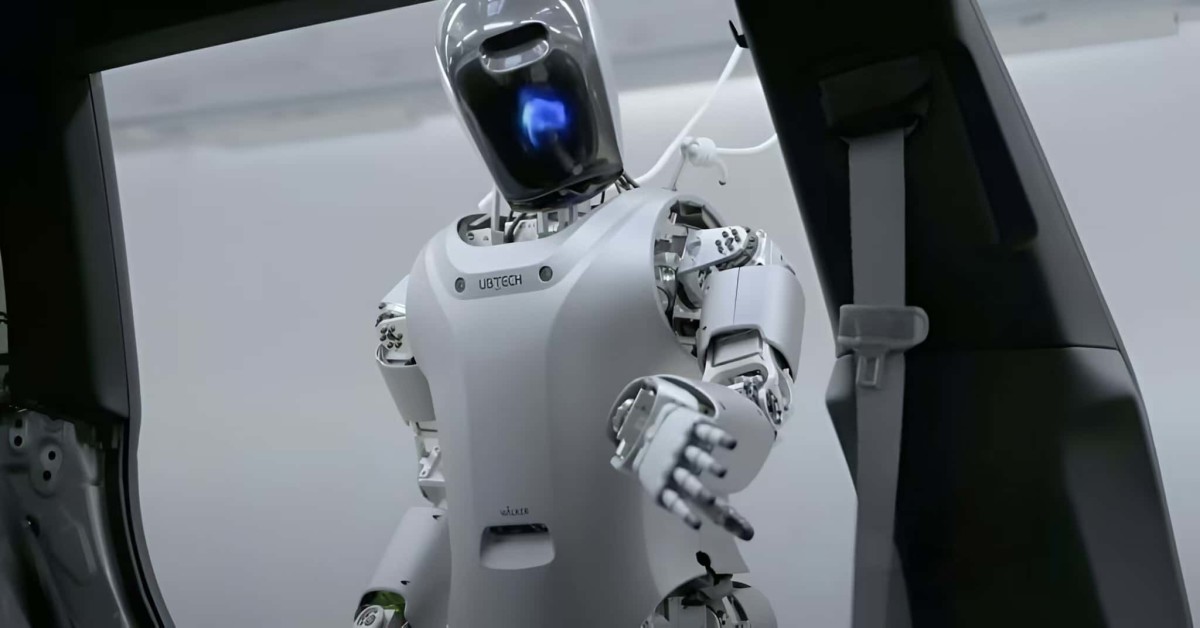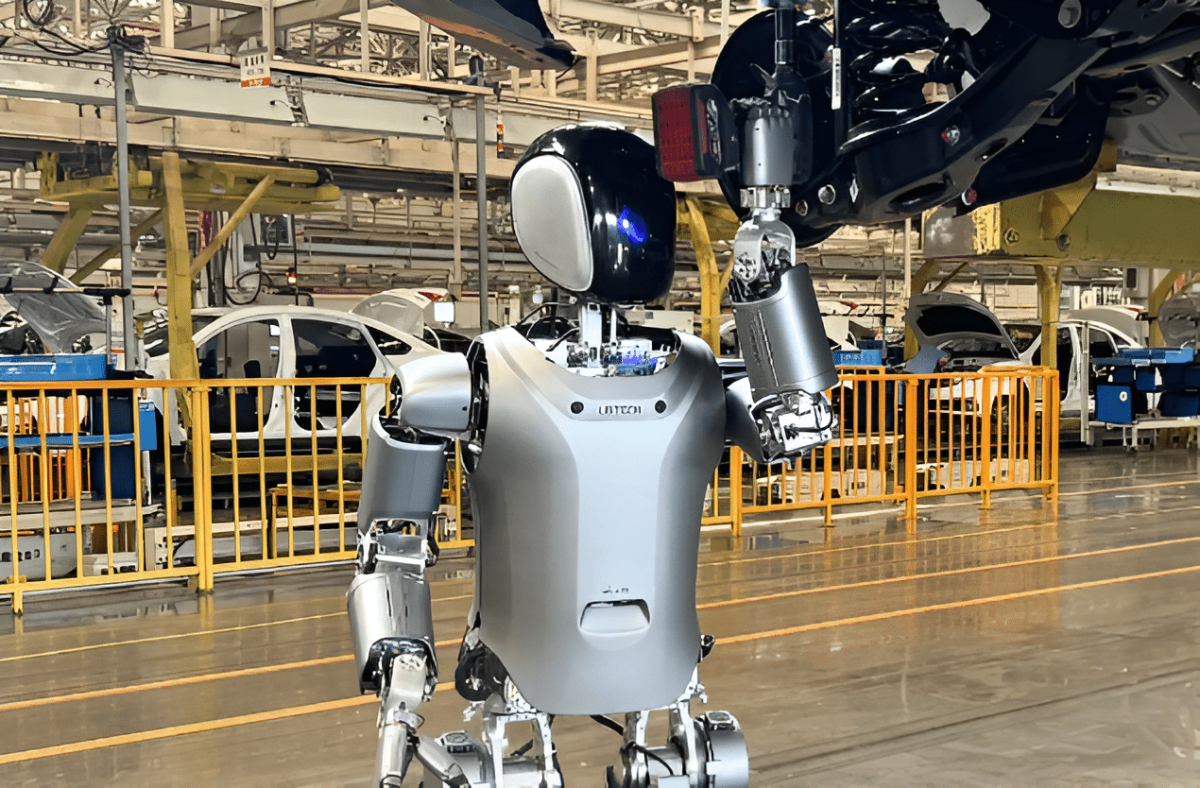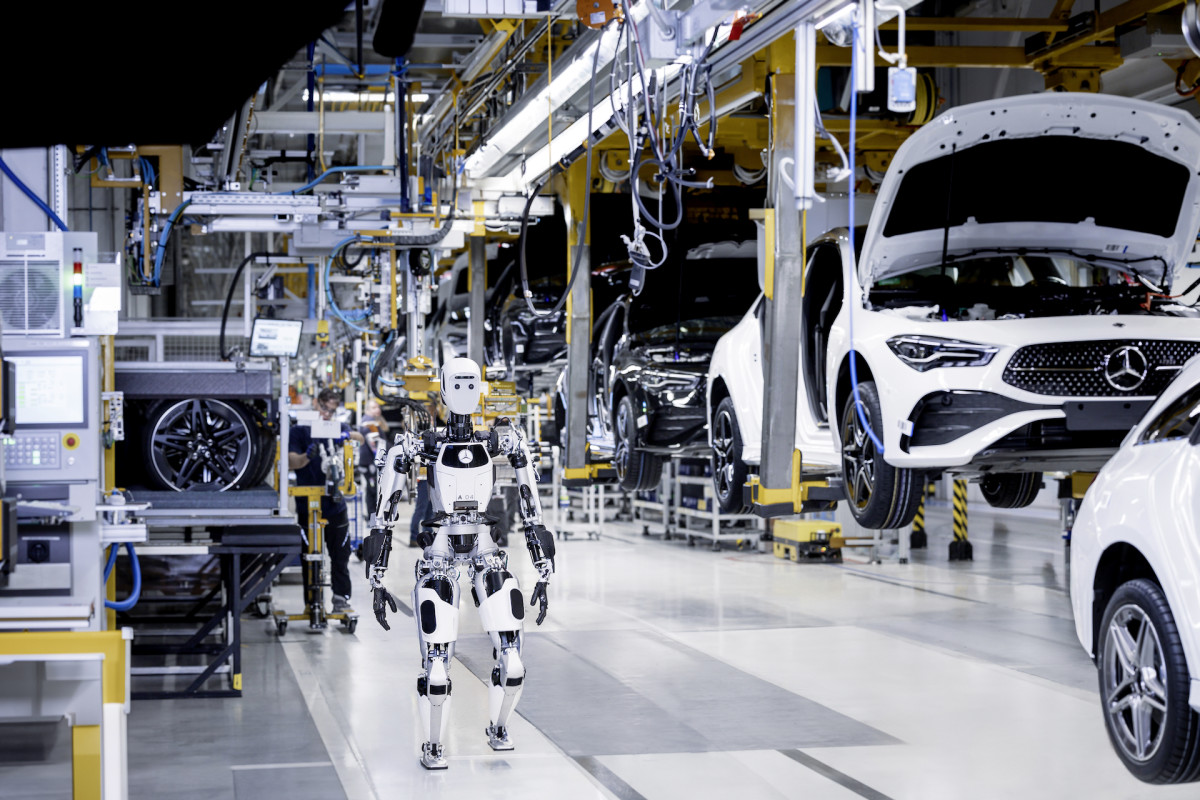
The term "life imitates art" is often meant to be a warning for those who want to recreate the fictional world in real life.
In this case, the art would be the 2018 video game Detroit: Become Human, a video game where players control a set of different characters representing an underclass of lifelike, humanoid robots who seek to achieve autonomy from their owners and operators.
Though the award-winning game is set in 2036, its dystopian future may be closer than we might imagine, thanks to an enterprising automaker out in China.

Dongfeng Motors
As per reports by Carscoops, Electrek and Car News China, humanoid robots will soon be sharing the production line floor with living, human production workers thanks to a deal between state-owned automotive firm Dongfeng Motor Corporation and Ubtech Robotics.
These new robots are Ubtech's Walker S model, a robot that greatly differs from the bright yellow or orange single-arm robots that are a common sight on many auto production lines around the world, looking more akin to something out of Terminator than something on a factory floor.
According to Dongfeng and Ubtech, the Walker S resembles "human proportions;" standing at 1.7 meters (about five foot, seven inches) tall and is also equipped with 41 servo joints and motors, advanced senory capabilities and a "fusion control" algorithm that allows communication and data sharing with the factory.

Dongfeng Motors
On the production lines of Dongfeng Liuzhou Motor, the bots will be responsible for tasks across different parts of the factory floor, including seat belt inspections, door lock testing, body control checks, oil filling and applying labels. Additionally, these bots will be able to work in tandem with other automated equipment to handle complex situations to effectively achieve unmanned production.
In a statement, Dongfeng Liuzhou Motor General Manager Lin Changbo noted that the new robots would use new AI technology to operate within its assembly lines. Like humans, these robots will need to go through some on-the-job training in order to work effectively.
"Walk S is designed for inspection, assembly, and logistics tasks," Changbo said. "We aim to enhance manufacturing capabilities and promote humanoid robots in the automotive industry."
More Automotive:
- Maserati exec defends the use of a car feature drivers hate
- Feds are skeptical about the safety of popular driver-assist tech
- Young guys who like loud cars are likely to be psychopaths, study suggests
The Job Terminator is here:

Apptronik
Robotic arms are a common sight on today's advanced production car assembly lines, and Dongfeng is not alone in employing advanced humanoid robots in its manufacturing facilities.
In March 2024, German household name Mercedes-Benz (MBGAF) began a partnership with Austin, Texas-based Apptronik, where their similar Apollo robots (with human-like faces) will be employed on the automaker's production lines. As per their joint press release, the robots are employed to free up menial roles on the line in order for humans to pay attention to more critical jobs.
"We are exploring new possibilities with the use of robotics to support our skilled workforce in manufacturing," Mercedes-Benz Group AG, Production, Quality & Supply Chain Management Board Member Jörg Burzer said.
"This is a new frontier and we want to understand the potential both for robotics and automotive manufacturing to fill labor gaps in areas such as low skill, repetitive and physically demanding work and to free up our highly skilled team members on the line to build the world’s most desirable cars."
Related: Alabama auto workers vote outcome shocks UAW union
For automakers, replacing humans with robots is looking more like a viable option, as the cost of labor and a newly-empowered, union-seeking workforce looks to disrupt the way things are usually done for many legacy automakers, including Detroit's Big Three.
Ford (F) finance chief John Lawler noted that the company is looking to use automation to offset the cost of the UAW's landmark contract, of which is anticipated to add about $900 in cost per vehicle by the time it expires in 2028, according to a November 2023 Wall Street Journal report,
Notably, the automaker noted that its most expensive provision is the landmark 25% wage increase for factory employees, as well as a faster path to top tier wages and inflation protections.
“We have our work cut out for us,” Lawler said at a conference in November 2023.
Related: Veteran fund manager picks favorite stocks for 2024







